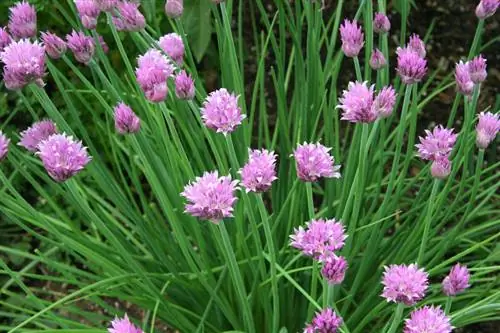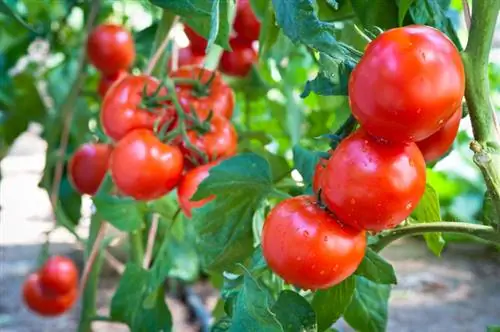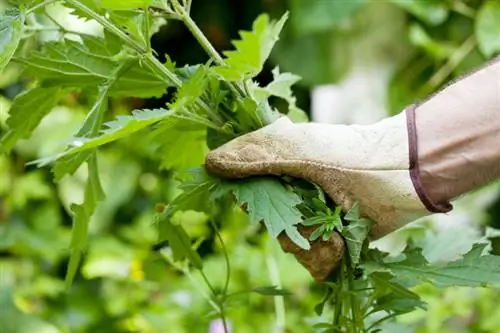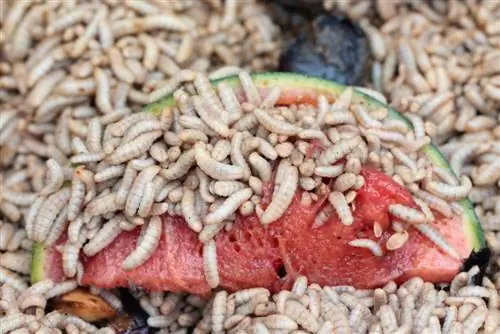- Author admin leonars@hobbygardeners.com.
- Public 2023-12-16 16:46.
- Last modified 2025-01-23 11:20.
Especially in purchased chive pots, after a short time there are lots of small, black flies. In most cases these are so-called fungus gnats, which spread very quickly. Fortunately, they are also quite easy to fight.
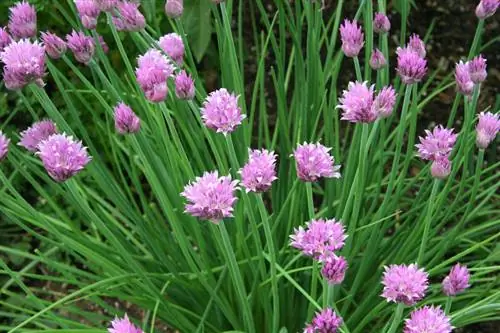
What can you do if chives are attacked by flies?
To combat flies in chives, remove the plant from the pot, remove soil, repot in fresh substrate, layer a centimeter of sand on top and treat neighboring plants as well. Also keep the plant less moist to prevent fungus gnats.
What are fungus gnats?
Fungus gnats are black, very small flies. The insects lay their eggs in the substrate of potted plants, where the larvae ultimately feed primarily on the roots. Without countermeasures, the animals multiply very quickly and they also endanger the he alth of your plants - not to mention that they are quite annoying. After all, who wants to have dozens or even hundreds of mosquitoes flying around in their kitchen? Therefore, you should act as quickly as possible after noticing the infestation.
Fighting fungus gnats
These little beasts can usually be easily controlled with organic home remedies - fortunately, because chemicals are generally not appropriate for herbs intended for consumption, such as chives. And this is how you get rid of flies on chives:
- Take the affected plant out of the pot.
- Shake off the soil thoroughly; if necessary, rinse it in the shower or immerse the rhizome in a bucket of water.
- Take a new plant pot (€12.00 on Amazon) and fresh substrate.
- Repot the plant.
- Ply a good centimeter of coarse sand over the actual substrate.
- The sand keeps the flies from laying their eggs in the soil.
- If the infestation is severe, you can also cover the pot, e.g. B. with a transparent film.
- If possible, treat all neighboring plants in the manner described.
By the way, an infestation with fungus gnats is always an indication that the plant is kept too moist - the animals feel particularly comfortable in a warm and moist environment.
Tips & Tricks
Chives - especially the seedlings - are often attacked by onion midges. In this case, it is important to act quickly because the maggots in particular are dangerous to the plant. Take the same countermeasures as described and hope it's not too late. In many cases, infected plants can no longer be saved.

